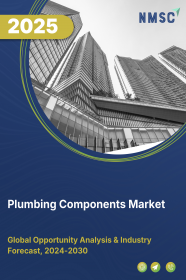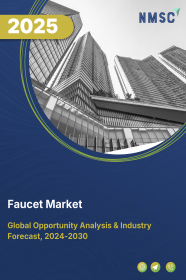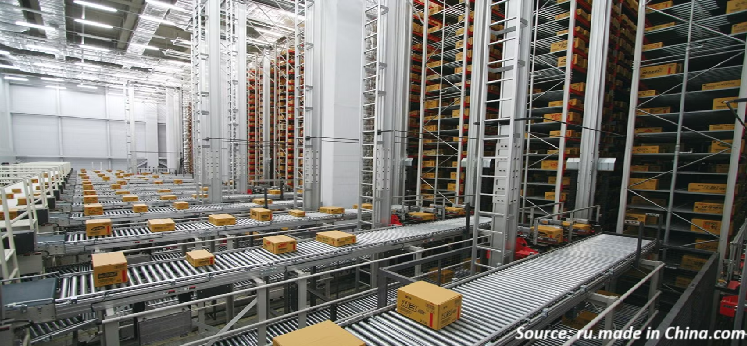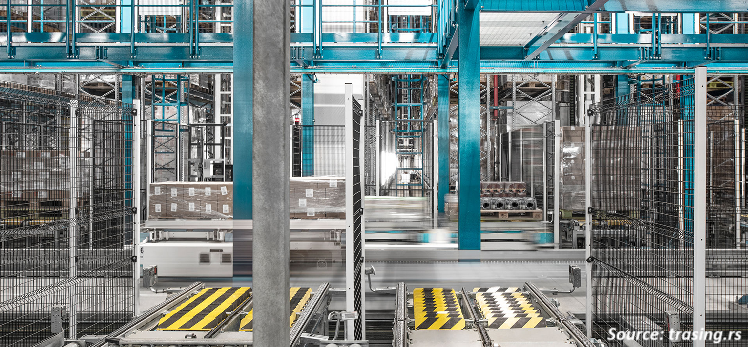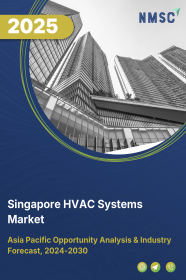
Singapore HVAC Systems Market by Equipment (Cooling Equipment, Heating Equipment, and Ventilation), by System Configuration (Centralized HVAC Systems, and Decentralized HVAC Systems), by Service Type (Installation Services, Maintenance and Repair, Upgradation/Replacement, and Consulting) by Technology (Traditional, and Smart) – Global Opportunity Analysis and Industry Forecast, 2024– 2030
Industry: Construction & Manufacturing | Publish Date: 21-Feb-2025 | No of Pages: 217 | No. of Tables: 174 | No. of Figures: 99 | Format: PDF | Report Code : CM1993
US Tariff Impact on Singapore HVAC Systems Market
Trump Tariffs Are Reshaping Global Business
Market Definition
The Singapore HVAC System Market size was valued at USD 904.1 million in 2023, and is predicted to reach USD 1620.2 million by 2030, at a CAGR of 8.1% from 2024 to 2030.
HVAC (Heating, Ventilation, and Air Conditioning) refers to the technology and systems used in buildings to regulate indoor environmental conditions such as temperature, humidity, and air quality to ensure comfort and safety for occupants. Heating systems provide warmth during colder months, ventilation systems circulate and replenish indoor air, and air conditioning systems cool and dehumidify indoor air during warmer months.
HVAC systems offer several advantages, including improved occupant comfort and health, increased energy efficiency leading to cost savings, better indoor air quality through filtration and ventilation, precise temperature control for enhanced productivity in commercial settings, and protection of building infrastructure from extreme weather conditions. Additionally, these systems can be designed to meet specific requirements, contributing to sustainability goals by reducing carbon emissions and promoting eco-friendly practices in building operations.
Increasing Energy-Saving Regulations Drives the HVAC System Market
The introduction of residential energy-saving regulations serves as a catalyst for growth in the HVAC system market. These regulations propel market expansion by mandating the adoption of more energy-efficient systems, compelling manufacturers to develop compliant HVAC units. Consequently, consumers are motivated to invest in energy-efficient HVAC systems to fulfill regulatory obligations and minimize energy expenses.
Additionally, these regulations enhance homeowners' awareness of the advantages of energy-efficient HVAC systems, resulting in heightened demand for such products. This heightened demand stimulates manufacturers to innovate and broaden their product offerings to cater to the burgeoning market demands, thereby intensifying the demand for energy-efficient HVAC systems.
Growing Demand for Improved Indoor and Outdoor Air Quality Drive the HVAC System Market
The escalating need for enhanced indoor and outdoor air quality is driving the growth of the HVAC system market. Increasing awareness regarding the significance of air quality is prompting residential and commercial property owners alike to invest in HVAC systems capable of efficiently filtering and purifying indoor air while minimizing outdoor emissions.
Consequently, there is a growing demand for advanced HVAC systems equipped with modern filtration technologies such as HEPA filters and UV-C light sterilization, designed to eliminate pollutants, allergens, and pathogens from indoor air. This trend is compelling HVAC manufacturers to innovate and develop new solutions prioritizing air quality improvement, thereby stimulating the growth of the HVAC system market.
Regulatory Compliance Associated with HVAC Systems Impede the Market Expansion
The growth potential of the HVAC industry encounters a significant barrier in regulatory compliance. This entails adhering to a multitude of laws, regulations, and standards stipulated by governmental bodies and industry organizations, covering various aspects including energy efficiency, emissions, refrigerants, and building codes.
Compliance with such regulations necessitates substantial investments in research, development, and technology to ensure alignment with prescribed standards. However, for smaller enterprises or those with limited resources, navigating this intricate regulatory landscape can be particularly daunting, potentially impeding their market entry or expansion.
Furthermore, compliance efforts often divert resources away from innovation and product development, as companies prioritize meeting regulatory requirements over investing in new technologies or enhancing existing ones. Consequently, regulatory compliance acts as a hindrance to the growth and development of the HVAC market, imposing additional costs and complexities on industry players and limiting their ability to fully exploit market opportunities.
IoT Integration Creates Ample Opportunities for the HVAC System Market
The integration of Internet of Things (IoT) technology represents a significant market opportunity for the HVAC industry. This integration leads to remote control functionalities, enhanced energy efficiency, and predictive maintenance solutions. By incorporating IoT devices and sensors into HVAC systems, users gain the ability to remotely monitor and adjust settings, optimize energy consumption, and proactively address maintenance issues before they escalate.
This advancement improves user experience and comfort, lowers energy costs, and extends the lifespan of HVAC equipment. As the demand surges for smarter and more efficient buildings, surpassing the capabilities of current infrastructure, the implementation of IoT integration is poised to create ample opportunities within the HVAC system market.
Competitive Landscape
The market players operating in the Singapore HVAC System market include Daikin Airconditioning (Singapore) Pte. Ltd., Mitsubishi Electric Asia Pte. Ltd., Johnson Controls, Carrier Global Corporation, Panasonic Asia Pacific Pte Ltd, LG Electronics (S) Pte. Ltd., Samsung, Trane Singapore, Carrier Singapore (Pte) Limited, Fujitsu General (Asia) Pte Ltd, Gree Electric Appliances (Singapore) Pte. Ltd., Heinen & Hopman Engineering Singapore Pte Ltd, Bioaire Air Conditioning Solutions, Prime Air Mechanical Engineering Pte Ltd., LUXURYCOOL PTE. LTD, HVAC Services Pte Ltd., EV Solutions Pte Ltd, Roger International, Schneider Electric, Midea Electric Trading (Singapore) Co Pte Ltd, and others.
Singapore HVAC System Market Key Segments
By Equipment
-
Cooling Equipment
-
Unitary Air Conditioners
-
Variable Refrigerant Flow Systems (VRF)
-
Chillers
-
Room Air Conditioners
-
Coolers
-
Cooling Towers
-
-
Heating Equipment
-
Heat Pumps
-
Furnaces
-
Unitary Heaters
-
Boilers
-
-
Ventilation
-
Air-handling Units (AHUs)
-
Air Filtration Systems
-
Ventilation Fans
-
HRVs & ERVs
-
Air Purification Systems
-
Others
-
By Implementation Type
-
New Construction
-
Retrofit
By System Configuration
-
Centralized HVAC Systems
-
Decentralized HVAC Systems
By Service Type
-
Installation Services
-
Maintenance and Repair
-
Upgradation/Replacement
-
Consulting
By Technology
-
Traditional
-
Smart
By End User
-
Residential
-
Single-Family Homes
-
Multi-Family Residential Complexes
-
-
Commercial
-
Office Buildings
-
Retail Stores
-
Hospitality
-
Healthcare Facilities
-
-
Industrial
-
Factories and Manufacturing Units
-
Warehouses
-
-
Institutional
-
Educational Institutions
-
Government Facilities
-
By Distribution Channel
-
Direct Sales
-
HVAC Contractors & Distributors
-
Online Sales Channels
-
Retail Stores
REPORT SCOPE AND SEGMENTATION:
|
Parameters |
Details |
|
Market Size in 2023 |
USD 904.1 Million |
|
Revenue Forecast in 2030 |
USD 1620.2 Million |
|
Growth Rate |
CAGR of 8.1% from 2024 to 2030 |
|
Analysis Period |
2023–2030 |
|
Base Year Considered |
2023 |
|
Forecast Period |
2024–2030 |
|
Market Size Estimation |
Million (USD) |
|
Growth Factors |
|
|
Companies Profiled |
20 |
|
Market Share |
Available for 20 companies |
|
Customization Scope |
Free customization (equivalent up to 80 working hours of analysts) after purchase. Addition or alteration to country, regional, and segment scope. |
|
Pricing and Purchase Options |
Avail customized purchase options to meet your exact research needs. |
KEY PLAYERS
-
Daikin Airconditioning (Singapore) Pte. Ltd.
-
Mitsubishi Electric Asia Pte. Ltd.
-
Johnson Controls
-
Carrier Global Corporation
-
Panasonic Asia Pacific Pte Ltd
-
LG Electronics (S) Pte. Ltd.
-
Samsung
-
Trane Singapore
-
Carrier Singapore (Pte) Limited
-
Fujitsu General (Asia) Pte Ltd
-
Gree Electric Appliances (Singapore) Pte. Ltd.
-
Heinen & Hopman Engineering Singapore Pte Ltd
-
Bioaire Air Conditioning Solutions
-
Prime Air Mechanical Engineering Pte Ltd.
-
LUXURYCOOL PTE. LTD
-
HVAC Services Pte Ltd.
-
EV Solutions Pte Ltd
-
Roger International
-
Schneider Electric
-
Midea Electric Trading (Singapore) Co Pte Ltd

















 Speak to Our Analyst
Speak to Our Analyst




